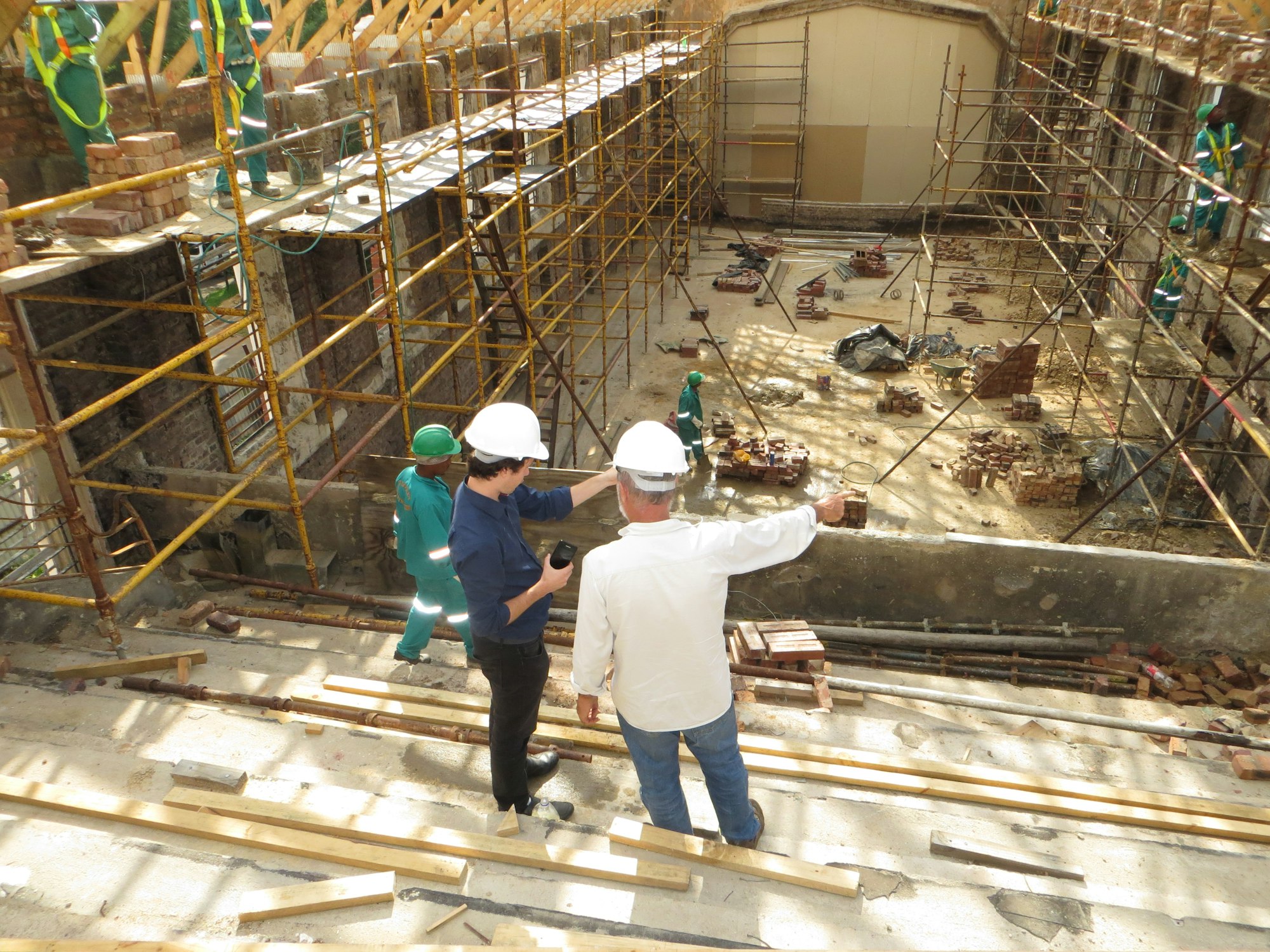Floware for Contractors
The construction industry faces many unique challenges, such as overruns, spiralling costs, and severe project delays due to supply shortages.
With inflation the highest it’s been in more than 40 years, firms are forced to closely monitor internal and external costs to proactively mitigate market concerns and protect cash flow and bottom line.
Every construction project is a beast, with many moving parts and interested stakeholders. As jobs change, grow, or near completion, there is a mountain of paperwork to go with it.
While necessary, the hours you spend crunching numbers, filling out spreadsheets, and sending reports would be better spent elsewhere.
Wouldn't it be great if you could hand over the more repetitive, low-value work to an automated system—instead of having your workers tied up and frustrated with endless manual tasks?
Now you can. Floware is a Business Automation tool specifically geared towards Independent Contractors and the construction industry.
Perfect for large and small companies, Floware is the smart way to do business.
With Floware, you get an all-round business tool that will improve your process efficiency—making your clients happier while boosting productivity company-wide.
So if you're looking to take your Contractor business to the next level, read on and find out how Floware can optimise your resources, improve your market position, and improve the profitability of your company.

Urgent challenges facing Independent Contractors
The construction and contractor industry wrangles with time and budget pressures as prices on the goods and services it depends on continue to climb to record-high levels.
The rising costs and pricing volatility inevitably churn through budgets, causing overages that lead to project deferrals and cancellations and add to the complexities of doing business, making it tougher to get ahead.
As if that’s not enough, the back office is also chipping away at profitability.
Paper-based, manual tasks, like those around processing invoices and paying the bills are time and labour-intensive, requiring staff to gather invoices, reconcile, chase approvals across job sites and cut paper checks for payments.
They are costly processes, especially for an industry that regularly deals with scores of invoices and multiple billing methods, including complicated pay-when-paid structures.

Why Business Automation is the answer
Construction projects are usually complex with bespoke specifications for each one. This makes projects difficult to iterate and outcomes hard to predict.
There are ways to streamline the processes within a construction project, as well as mitigate health and safety risks, eliminate outdated methods (for example, Excel sheets), and limit overruns.
Process automation is an effective way to streamline workflows in a construction project, including material requisition, permit to dig, health and safety checks, risk assessment, and the onboarding of contractors and subcontractors.
Automating financial processes like invoicing and bill pay eases demands on time and budgets, freeing staff to focus on winning and serving customers.

Business functions that can effectively be automated
The benefits of automation in construction are far-reaching. Here are some of the processes you would be able to automate in your contractor business:
1. Creating the WIP
Your work-in-progress (WIP) is hugely important to each job’s success. The WIP is proof that your job cost system is consistent, accurate, and timely. One way to improve your WIP is to automate the flow of data into it ensuring that the information there is the most accurate and timely it can be.
2. Budgeting
Most construction projects come in over budget. Know where you stand throughout the month by tracking your spend. Having visibility on where the money is going will help you keep tabs on whether you are on track to come in on budget or be more proactive if costs are running high.
forecasting">3. Revenue Forecasting
Forecasting is a time-sensitive and time-intensive process. It’s necessary so you can make better business decisions and develop smart strategies for growth. By using a platform that can save and learn from your previous forecasts and success rates, you can automate the process.

4. Planning
Your financial plan is your business’s life force. Drive better results faster thanks to automated processes that deliver timely information to your teams as they need it. Start creating models, scenarios, and plans on your schedule with access to dynamic data.
5. Reporting
Reports are required on a regular basis to be sent out to stakeholders, and then decisions made from the information are passed down the chain. Business automation can collate the necessary information and send it to stakeholders once set up, freeing precious time and manpower for more important work.
Your business is unique — your software should be too. Let's talk about a system built around how you actually work.
Book a free consultation6. Accounts Payable
The finance team has many invoices coming through their hands for each job. Coding invoices alone involves a huge amount of the team’s time. Setting up a system that can recognize regular suppliers and subs to automate invoices will save your team a huge amount of time.

7. Requisition for materials
By using a process automation tool, site managers are required to fill out a set form, with accurate data entry fields, which then prompts the requisition team. This ensures that data is relayed accurately, in a standardised way, and means that important information doesn’t get overlooked.
8. Dealing with Paperwork in the Construction Industry
In the building industry, site offices are scattered across various locations, often far away from the HQ and back office.
The situation can be helped by a workflow system that helps build a single place for the entire circulation, archiving and acceptance of invoices, orders and all kinds of confirmations.
9. Subcontractor billing
Construction and development companies often use subcontractors. This calls for billing of services, materials and equipment hired. Business automation will be able to extract the correct information from these sources and use it for data analysis, data combination and drafting of financial documents.

10. Payroll accounts
In construction companies, the calculation of salaries comes with the need for still more reports. This includes costs of individual investments, a breakdown of the working hours of different workers on specific sites, staff reports, health and safety reports and, of course, payroll.
Business automation can be used to collect, compile and convey all the data to the relevant people according to a set schedule.
11. Payment processing
In the construction industry, a large proportion of transactions are based on large sums of money, and payment periods are not the shortest either. As a result, large transactions must be meticulously reviewed and approved.
An automated workflow can be created for this approval path, which ensures that all attached documents are stored in the correct place. This makes it a simple matter to later go back and verify what decisions and on what basis were made.
12. Data entry and reporting
Construction and development companies work on high-value investments spread out over a long time. This requires a well-planned and organised system for measuring costs and profitability in many areas.
The situation can be simplified by workflows that automatically aggregate data and provide reports at any time upon user request.

13. Ensure Consistent Contractor, Supplier Payments
Construction is a complex business with complicated owner billing and payment structures, frequent change orders and slews of stakeholders. This requires precise management of cash flow, efficient owner billing, and exact monitoring of inventory levels.
Automatic workflows can be created to enable invoices to be automatically acquired, coded and sent to the appropriate persons for approval. Automated bill payment software can then be used to accelerate payment deliveries.
You shouldn't need to find workarounds.
Let's build the software so you won't have to.
14. Streamline Back-office Operations for Agility
Streamlining the back office with cloud-based automation that seamlessly integrates with existing accounting software allows construction firms to accept online invoices, pay them electronically and keep real-time records of transactions and supplier data.
With better insights into expenses and incoming payments, firms can more accurately bid projects, allocate resources and make projections to improve margins and ultimately profitability.

Benefits of Automation for Contractors
By replacing time-intensive manual processes with automation, firms can save time and money. Staff is empowered to do more with less and their time freed for more strategic work like strengthening supply relationships and seeking new opportunities.
Here are some of the benefits that independent contractors and construction companies can reap from business automation:
1. Increased productivity
If a construction company automates a significant amount of its processes, it will see a boost in worker engagement, seamless contractor onboarding, and an acceleration toward project delivery.
2. Deliver an ROI
If a firm automates enough of its processes, it will cut overheads by a considerable amount.
3. Beat out competition
Process automation in construction is still a novel technology and has not been adopted across the industry. This means that firms that automate construction will have a market advantage.

4. Gain data visibility
Automation makes a wealth of data available which improves decision-making in the long term and ensures that challenges with processes can be quickly refined.
5. Become agile
Process automation in construction helps construction teams to connect and collaborate more quickly. This ensures that employees can remain agile as they navigate complex projects.
6. Mitigate risk
The construction industry is heavily regulated. If someone fails to comply with audits or to record specific key data points, there can be serious health and safety implications. With process automation, online forms with exact data entry fields can mitigate risk.

Floware—business automation done right
Floware is the leading business automation solution for Independent Contractors and construction companies worldwide.
The software makes it easy to get up and running in minutes—right after you register your account at Floware.co.
Floware is your key to flawless business management.
For construction businesses to digitise, they need to pick out tools which support the specific needs of projects and processes. This can be difficult, since construction projects are unique and the demands across a project can vary.
Automation in construction is designed to produce higher production rates, improve project delivery times, create better health and safety measures, and reduce overheads on projects.
Automate tasks such as job management, scheduling, invoicing and communication with customers.
Floware is a financial platform that enables construction companies to be more efficient and profitable.
Floware automates financial workflows by connecting the people, processes, and systems that contractors use to run their business. You can rely on Floware to manage your budget, forecast, and spend.
With the power of business automation, you will be equipped with tools to automate the following parts of your construction business:
- Client management
- Project management
- Inventory Management
- Pipeline Management
- Contact Center
- Web forms
- Product catalogue and many more
Floware will allow you to streamline many troubling spots in your business, reduce the error rate, and eliminate payment bottlenecks, aiming for reduced process costs.
If you have already decided on your needs, contact us for a detailed discussion of the project. If not, we will be happy to help you choose the best solution based on your business objectives.
If you’re ready to get started with painless business automation, drive rapid digitization and see a six-week ROI, hit the button below to get in touch.
Try floware now and take your Contracting business to a totally new level!
Get Floware today.